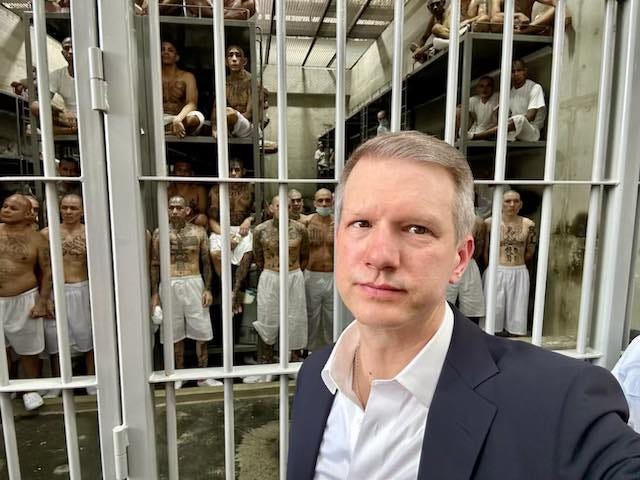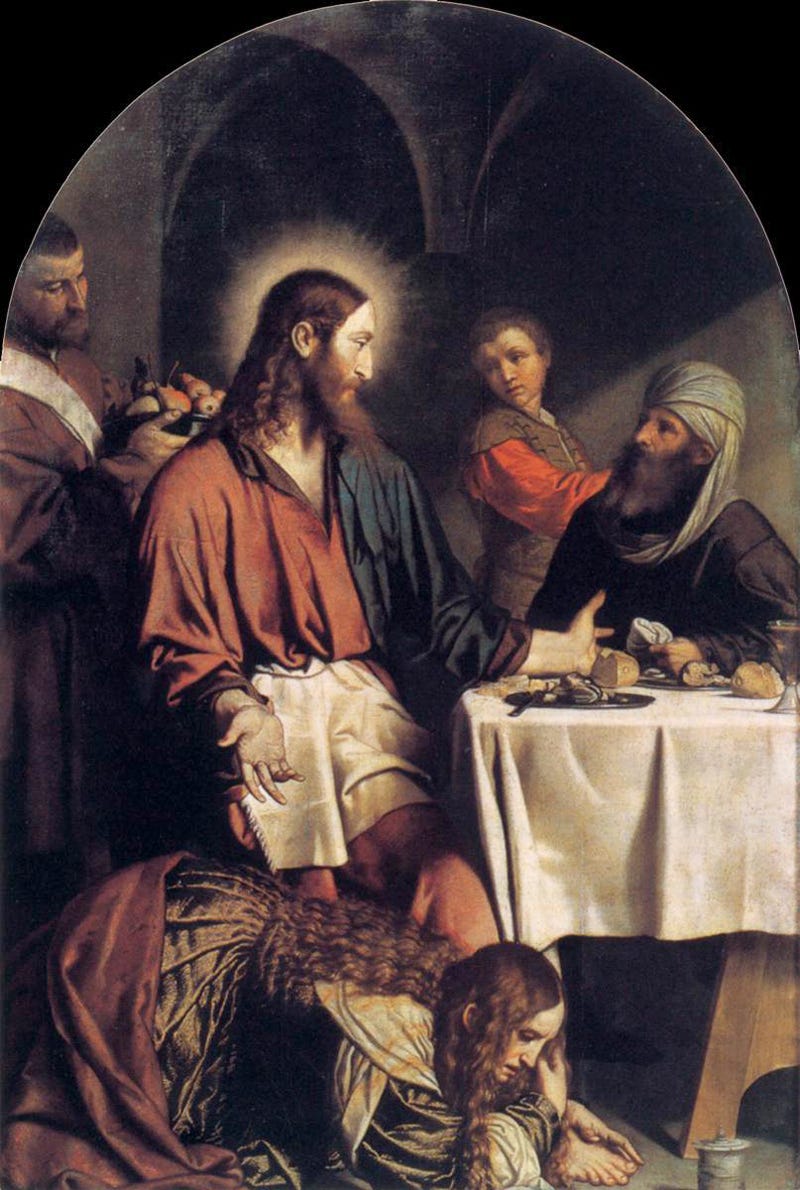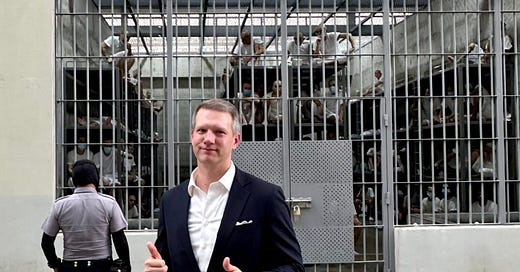We might be weary with politics and long to turn it all off during Holy Week so we can focus on Christ. But if we’re intent on tracing the steps of Jesus during the final week before His death, we’ll be disappointed to find politics throughout his interactions.
Politics are found wherever there is power to be grabbed. Jesus understood this and was shrewd in His dealings with people throughout the course of His life so that He never became ensnared in politics until the time was right. And even when He finally began dealing with political issues head on, He navigated them in such a way that we are, to this day, left both mystified and enlightened by His words and deeds.
Let’s take a look at Matthew 26 for an example. The chapter begins as Jesus finishes his teaching from Matthew 25, in which He cautioned His followers to be prepared for the coming judgment. In the Parables of the Ten Bridesmaids and the Talents, He uses vivid imagery to warn those who might lose the plot while waiting for His return – don’t be caught in slumber, laziness, or self-sufficiency because you will be held accountable for what you do with your wild and beautiful life. And then He sums it all up in the final portion of Matthew 25 in which He issues The Judgment of the Nations. He explicitly connects the reward of “knowing” Him with providing physical sustenance for the hungry and thirsty, welcoming strangers, clothing the naked, taking care of the sick, and visiting the imprisoned. Then, he explicitly connects the punishment of “not knowing” Him to the withholding of physical sustenance from the hungry and poor, turning away strangers, denying clothing to the naked, and neglecting the sick and imprisoned. In case we might be left to debate if He really meant those hungry, strange, sick, poor, and imprisoned, He dropped the mic with this unequivocal statement:
“Truly I tell you, just as you did not do it to one of the least of these, you did not do it to me.” – Matthew 25:45
We’re left with this math hanging in the air:
The Treatment We Give the “Least” Among Us = The Treatment We Give Christ

In Matthew 26, He finishes this teaching and then warns His disciples that He will soon be crucified, though we read elsewhere that they didn’t seem to understand Him when He talked this way. Perhaps it was simply unthinkable, or too much to process, or they weren’t listening deeply – to Jesus’ life and His words.
More disturbingly, perhaps, is the possibility that they didn’t take Him seriously.
I’ve only recently begun to wonder if that may be the case because of how many of us claim Jesus as the Lord of our lives and yet don’t take His teachings and example seriously. A stock market crash? Serious business. Our preferred politicians losing or gaining power? Serious as a heart attack. Prices high at the store? Super serious. The Culture War of the Day? Armageddon-level serious.
But Jesus’ teaching in Matthew 25 regarding the criteria He is going to use to judge our lives? Meh. We’re too busy demonizing our political opponents to provide tangible, physical care for the “least of these” who are Christ in disguise. Thoughts and prayers will have to suffice.
The religious folks of Jesus’ community decided to arrest and kill Him “by stealth,” noting that it wouldn’t be politically prudent to do it in the open during the time of the Passover festival (vs 4-5). So where does Jesus go during this plot to kill Him? He chooses to dwell in the home of a man named Simon, whose one important distinction is that he had a skin disease, something that would have made him a social pariah at some point in his life.
Jesus chooses to spend His last days with the “least of these.” Meanwhile, the religious ones in good standing were plotting to annihilate Him for political purposes.
Into the home of Simon-the-Skin-Diseased, walks a woman who is not named.[1] She is carrying an alabaster jar of expensive ointment. Scholars agree that this jar was worth a year’s wages for a male laborer. Who knows how this woman procured this extravagance, but she was a person on a mission. She understood what the disciples did not – Jesus should be taken seriously. He had announced His upcoming violent death, and she took Him at His word.
This unnamed woman saw God as God was, not as she wanted God to be. Then she lovingly touched Him, offering this leadership to all humankind, as she anointed God (and God’s body) for His death.

The men were incensed. How dare she deprive the poor – the very same poor Jesus had just taught them to sustain – of the resources this treasure could have provided! Jesus, as He often did, corrected their understanding of His mission and His teachings. He called her extravagant act a “good service” to Him and then he did something extraordinary – having already allowed an intimate physical connection with this unnamed woman, He connected Himself and His “good news” to her forever:
“Truly I tell you, wherever this good news is proclaimed in the whole world, what she has done will be told in remembrance of her.” (vs 13)
He leaves us with this also hanging in the air:
An unnamed woman who obviously elicited no respect from people received the highest honor from the God. She saw God, prepared for Him, believed Him, and poured out tangible care for Him in His time of trial.
Contrast her response of self-giving love with the religious response from both the conservative gatekeepers, the preservers of tradition (the elders and chief priests) and the liberal do-gooders, the social justice warriors (the disciples).
While they dripped with self-righteousness, she dripped with the ointment of love. While they plotted to kill, to betray, and to judge, she attended to the business of God, though only Jesus saw her righteous work as such.
In John’s version of these events, the woman is named Mary, and she anoints his feet with the oil and her own hair and tears. Later, at the Last Supper, Jesus continued this theme when he rose from the table, stripped off his outer garments, filled a basin with water, and washed his disciples’ feet. Once again, the disciples didn’t quite understand God’s heart and mission for the world. Peter argued and attempted to negotiate away the stunning fact that the Lord of Life was humbling Himself to the lowest degree for his sake. When Jesus finished, and before He offered His own body and blood to these disciples, He said this:
“Do you know what I have done to you? You call me Teacher and Lord, and you are right, for that is what I am. So if I, your Lord and Teacher, have washed your feet, you also ought to wash one another’s feet. For I have set you an example, that you also should do as I have done to you. Very truly, I tell you, slaves are not greater than their master, nor are messengers greater than the one who sent them.” (John 13:12-16)
As I ponder Mary’s response to Jesus, I find myself in awe of her spiritual attunement during a time of immense darkness. Her leadership stands out in comparison to the disciples who had followed Jesus so closely and in contrast to the community elders and chief priests who had spent their entire lives developing godly personas. When Satan was having his day and evil was building up to the ultimate crescendo in which the Beloved of God would murder God, Mary offered everything she had in quiet service to love.
Perhaps she took Jesus seriously because she had watched him resurrect her brother, Lazarus, from the dead (John 11). There’s something about losing someone you love to the abyss, knowing that your world will never be the same again, only to have that person restored to you in wholeness that disrupts all your preconceived notions of what’s real and what’s possible. Mary knew, intimately, the God of the Impossible. She understood, on a level that only comes with experience, that our tidy, human-made categories of comprehension – our politics of power – are inconsequential in the presence of this kind of God.
Instead of playing the politics of propriety, or of self-righteousness, or of violence and hierarchy, she led the way by lowering herself to the feet of God and lavishing Him with every ounce of love she had to give. Why? Because she saw God, she believed God, and she took God seriously. This is a God who lowers Himself to our status and stature, who identifies with the least of us, who washes the feet of betraying men, and who is resolute in His faithfulness to all humankind even when we are unfaithful to Him and to one another.
And she understood, intuitively, what Jesus had to spell out explicitly for the disciples: the messengers are not greater than the One who sent them; therefore, we must live as Christ lived – in the riskiness of love – or we have no part in what He’s doing.
We can choose between blind self-righteousness or the clarity that comes with the washing of feet, but we can’t have both.
If politics happen wherever there is power to be grabbed, this woman showed us politics in God’s Economy as she pioneered a new way of living in which her trust in the power of God enabled her to follow Him, in seriousness and sincerity, into the extravagant foolishness of love.
“Holy God,
who call your people to sustain the weary
and protect the oppressed.
Uphold us in our concern
and strengthen us,
that we may not only speak our prayers
but act on behalf of their fulfillment.
Most Holy One,
grant that we may be counted
as members of the great cloud of witnesses
who live with justice and compassion,
and reveal your divine glory before all people. Amen” – Vanderbilt Lectionary
[1] The woman is identified as Mary in John 12, but in Matthew’s gospel she is unnamed






This is aMAZing friend! So good! I love how you name our propensity, on the right and left, to “overlook” Jesus’ command to love the least in favor of basically anything else. Why? Because we think his ask is too hard, too risky, too outside of the box, and even in doable. Yet, the magic is, when we lean into this, we end up finding it’s the most natural, normal, and rewarding thing in the world. May we collectively wake up to this truth. And thank you for moving us that direction, Amber! 🫶🏼